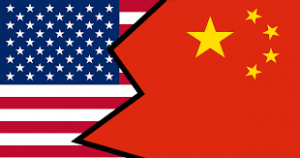The U.S. China Business Council, the largest lobby for American multinational interests in China, outlined their wish list of things for the Trump Administration. Of course, no trade war was one of them. Judging by who he has put in charge of China, Iowa governor Terry Branstad (friend of Xi Jinping), it appears that an all-out trade war is off the table.
What the USCBC is hoping for is two-fold: China inflows into the U.S. economy. And better deals for U.S. companies in China.
With regards to China inflows here, it’s a fascinating angle because China is not a large player in terms of foreign direct investment in the United States. It wants to be, as shown by the difficult deals it has made over the years already, in both manufacturing and real estate. If the Council got its way, China would be allowed to invest more here in return for the U.S. getting better patent protections in China.
They outlined four priorities in a statement released this week by the board of directors, including a bilateral trade agreement (a perennial USCBC bucket list item); reduced “politicized” trade barriers; transparency and oversupply issues in China and intellectual property rights.
Even though the group would like to see more of a two-way street on investing, the lobby firm’s goal here is to push Washington to get on the same page when it comes to American corporate needs in China. For instance, as Trump has stated a few times, China maintains high import duties and consumption taxes on a wide array of popular U.S. consumer goods. “Reducing or eliminating tariffs and taxes on consumer goods and ensuring equitable treatment of domestic and foreign-made products would be a simple yet powerful stimulant of domestic consumption,” they said in a report dated March 8. You can see it here. They may be preaching to the choir here, however. Removing restraints on American imports is not for Washington to decide.
Ford Motor Company’s CEO Mark Fields, chair of the USCBC, says the report outlines “fundamental steps…to guide actions of both governments in the years ahead.”


